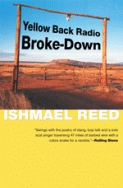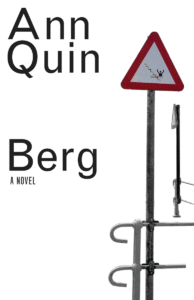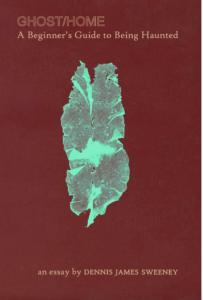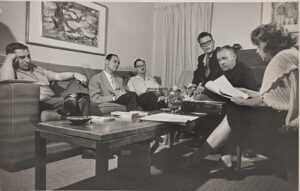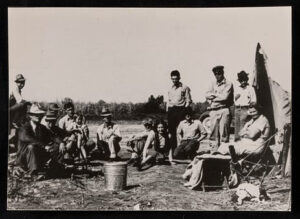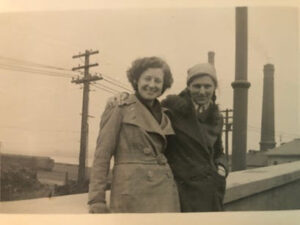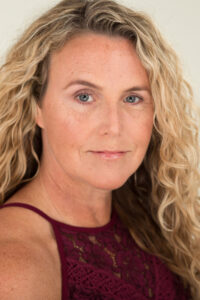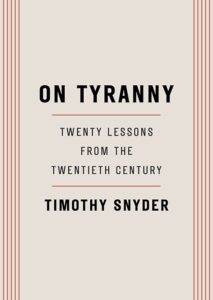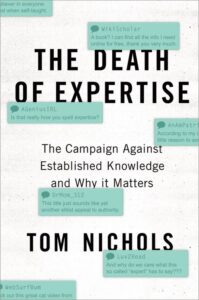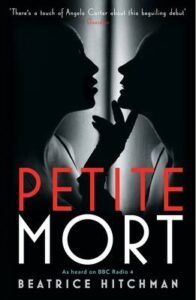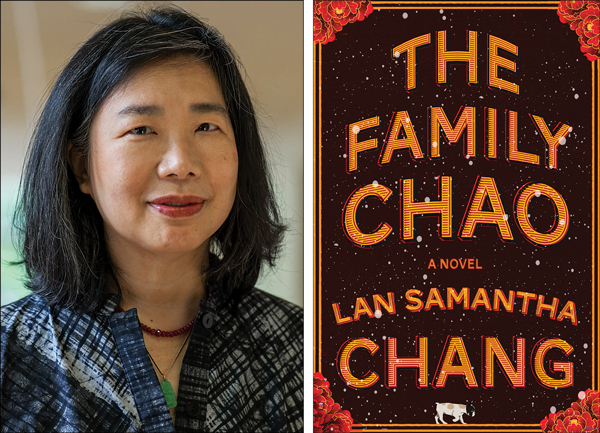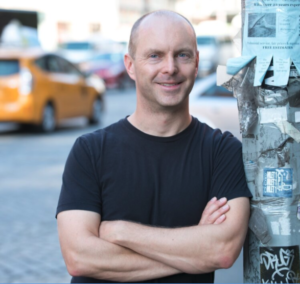Dennis James Sweeney: How to Submit: Getting Your Writing Published with Literary Magazines and Small Presses
March 20, 2025 by David
Filed under Non-Fiction, WritersCast
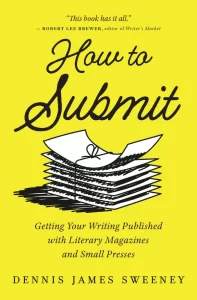 How to Submit: Getting Your Writing Published with Literary Magazines and Small Presses – Dennis James Sweeney – New World Library – Paperback – 9781608689361 – 216 pages – $18.95 – February 25, 2025 – ebook versions available at lower prices
How to Submit: Getting Your Writing Published with Literary Magazines and Small Presses – Dennis James Sweeney – New World Library – Paperback – 9781608689361 – 216 pages – $18.95 – February 25, 2025 – ebook versions available at lower prices
This book is described by its publisher as “A comprehensive guide to getting published and building a literary reputation through small presses and magazines — and taking ownership of your own publishing life.” While I am very familiar with publishing marketing lingo, I think this description, while literally accurate, actually undervalues Sweeney’s book. He does offer us much more than just a “guide to getting published.” By talking to writers as a colleague and exploring his own journey as a writer, he turns what could have been a mechanical self help guide into something much more interesting and engaging.
I’ve been on both sides of the process this book is about – as a writer submitting work for publication and more often as a publisher and editor, combing through submissions of all kinds and qualities. This book provides much more than simply guidance, tools and support for writers. In it, Sweeney personalizes what is so often a depersonalized process, and helps writers see themselves as active agents in a complex ecosystem with many levels and activities. And in many ways, he reveals the process of “submitting” one’s work as an almost spiritual practice, not just a means to an end.
All of the podcast interviews I do are unstructured and informal – I like to start without notes or an agenda and see where the conversation goes. Talking to Dennis was truly a pleasure, and I think we ended up having a wonderfully organic and interesting conversation about the independent literary world, contemporary writing, and the role of the writer in that community. Whether you are already a published author, or a publisher or magazine that works with author submissions, this book has a great deal to offer you.
Dennis James Sweeney is a writer and teacher. His books have been published by small independent presses, including Autumn House Press, Essay Press, Ricochet Editions, and Stillhouse Press, and his writing has appeared in Ecotone, The Southern Review, Witness, and The New York Times. Sweeney lives, writes, and teaches in Amherst, Massachusetts. Author website here.
But the book here.
Podcast: Play in new window | Download
Iris Jamahl Dunkle: Riding Like the Wind: The Life of Sanora Babb
March 3, 2025 by David
Filed under Fiction, Non-Fiction, WritersCast
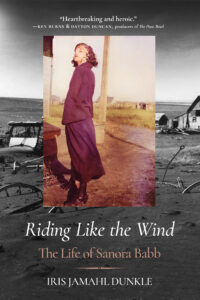 Riding Like the Wind: The Life of Sanora Babb — Iris Jamahl Dunkle — University of California Press — Hardcover — 9780520395442 — 416 pages — $27.95 — October 15, 2024 — ebook versions available at lower prices.
Riding Like the Wind: The Life of Sanora Babb — Iris Jamahl Dunkle — University of California Press — Hardcover — 9780520395442 — 416 pages — $27.95 — October 15, 2024 — ebook versions available at lower prices.Podcast: Play in new window | Download
Publishing Talks Interview with Leah Paulos Press Shop PR
September 4, 2024 by David
Filed under PublishingTalks, The Future
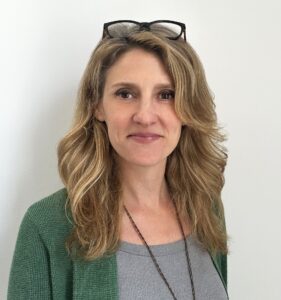 Publishing Talks began years ago as a series of conversations with book industry professionals and others involved in media and technology. Most of these interviews originally involved the future of publishing, books, and culture, talking with people in the book industry about how publishing is evolving in the context of technology, culture, and economics.
Publishing Talks began years ago as a series of conversations with book industry professionals and others involved in media and technology. Most of these interviews originally involved the future of publishing, books, and culture, talking with people in the book industry about how publishing is evolving in the context of technology, culture, and economics.
Later this series broadened to include conversations to go beyond the future of publishing. In an effort to document the literary world, I’ve talked with a variety of editors, publishers and others who have been innovators and leaders in independent publishing in the past and into the present.
These conversations have been inspirational to me on many levels. I have gotten to speak with visionaries and entrepreneurs, as well as editors and publishers who have influenced and changed contemporary literature and culture. I’ve also had the opportunity to speak with a number of friends and colleagues I have met or worked with during the many years I have been in the book business.
More recently, I’ve been talking to book folks about what is going on in publishing today, quite often about the changes in marketing and promotion that have marked all media industries as social media has overwhelmed traditional media, creating an extremely complex and constantly changing environment.
One thing is certain about publishing – there are no final answers, but there are many really important questions that we should be asking all the time.
I recently had the opportunity to (virtually) meet and talk to Leah Paulos about some of these questions. Leah is the Founder and Director of Publicity at Press Shop PR and Book Publicity School, and has worked in books and media for over 25 years. Leah has spoken on book publicity at Columbia School of Journalism, CUNY Graduate Center, and as part of her regular workshop series, Book Publicity for Literary Agents. She’s been a magazine editor and a writer, before shifting careers and becoming a book publicist in 2006. She launched her own business, Press Shop PR in 2012 and has worked on campaigns for over 300 authors since its launch, including for ON TYRANNY by Timothy Snyder, MARCH by Rep. John Lewis, and WELCOME TO THE UNIVERSE by Neil deGrasse Tyson.
In 2023, Leah launched Book Publicity School to bring professional PR support directly to authors, as so often today, book publishers require their authors to lead their own publicity efforts. With workshops and coaching programs, Book Publicity School provides authors with tools, strategies, and know-how to effectively advocate for their own work.
With an ever increasing abundance of book product in the market, every author and every publisher is desperately trying to figure out how to reach readers. Our creativity and ability to innovate are constantly being challenged. We need more conversations like this one to help spur us advance our thinking. Authors and publishers alike want to know what works, what doesn’t. And what is on the horizon. Since everything is changing all the time, the only way to keep up is to talk to as many people as possible about what they are doing and what they are observing. I hope this conversation will therefore be useful to writers, publishers, and readers as well.
Please ping me if you have any questions or ideas spurred by this discussion.
Podcast: Play in new window | Download
Beatrice Hitchman: All of You Every Single One
September 14, 2022 by David
Filed under Fiction, WritersCast
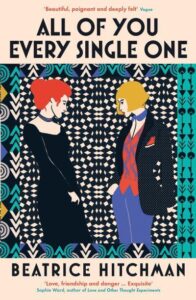 All of You Every Single One: A Novel – Beatrice Hitchman – Overlook Press – 978-1-4197-5693-1 – Hardcover – 320 pages – $26 – January 4, 2022 – ebook editions available at lower prices
All of You Every Single One: A Novel – Beatrice Hitchman – Overlook Press – 978-1-4197-5693-1 – Hardcover – 320 pages – $26 – January 4, 2022 – ebook editions available at lower prices
This novel is an absolutely riveting book I truly enjoyed. And happily, it introduced me to the work of Beatrice Hitchman, who is a wonderful writer. Her story begins in 1910 with Julia Lindqvist, who is unhappily married to a well known Swedish playwright. She leaves him after falling passionately in love with a captivating Austrian woman, a tailor named Eve. Together, they escape to the much less restrictive environment of Vienna, where the story unfolds over the course of 35 years, against the backdrop of the progressive period between the wars, the couple’s close-knit group of unusual friends, Julia’s analysis by Freud, and then later, the difficult period leading up to and including World War II.
Julia and Eve create a lifelong partnership and live as a couple. With the help of their friend, Frau Berndt, they form a network of supportive friends and neighbors. The narrative shifts between Julia, Eve, and the other key people in their network.
I felt that the beginning of the book does not prepare us for all that will follow, and there were times when I could not keep track of all the characters and the storyline. And I’d say that the ending is perhaps the weakest part of the novel. But the author’s language carried me forward, and her characters have stayed with me still. This book will reward you with its depth throughout.
This is Beatrice Hitchman’s second novel. Her first, Petite Mort, was published in 2013 by Serpent’s Tail. She was born in London and has lived in Hong Kong, Edinburgh and Paris. Beatrice is a Lecturer in Creative Writing at the University of Brighton. Her research focuses on contemporary queer fiction, the ethics of historical fiction, writing the remote past, and the endings/closure events of novels (which certainly comes through in this novel!)
You can visit her website here. Buy her book here.
I loved talking to Beatrice about her novel and hope you will enjoy hearing our conversation.
Podcast: Play in new window | Download
Publishing Talks: Interview with George Slowik, Jr. of Publishers Weekly
February 23, 2022 by David
Filed under Publishing History, PublishingTalks
 Publishing Talks began as a series of conversations with book industry professionals and others involved in media and technology, mostly talking about the future of publishing, books, and culture. I’ve spent time talking with people in the book industry about how publishing is evolving in the context of technology, culture, and economics.
Publishing Talks began as a series of conversations with book industry professionals and others involved in media and technology, mostly talking about the future of publishing, books, and culture. I’ve spent time talking with people in the book industry about how publishing is evolving in the context of technology, culture, and economics.
Some years ago, this series broadened to include conversations that go beyond the future of publishing. In an effort to document the literary world, I’ve talked with a variety of editors, publishers and others who have been innovators and leaders in independent publishing in the past and into the present.
These conversations have been inspirational to me on many levels. I have gotten to speak with visionaries and entrepreneurs, as well as editors and publishers who have influenced and changed contemporary literature and culture. I’ve also had the opportunity to speak with a number of friends and colleagues I have met over the many years I have been in the book business.
2022 is the 150th anniversary of Publishers Weekly, the essential trade magazine of the book industry. The magazine was founded in 1872, and the fact that it has not just survived, but thrived for most of the many years it has been published says something about both the book industry and the people who have been part of its trade media.
Just as it has done for so many magazines, the digital era has meant change for Publishers Weekly, and credit is due to current ownership for guiding it successfully through very difficult times. Those of us who have been around the book business for a long time remember PW as it is ubiquitously called, when it had a lot more pages than it does today, and when it was literally the only way to get news about publishing and bookselling in one reliable place. Now the print magazine is relatively short, most of us consume it digitally, and the magazine’s products and revenues are radically different from what they were just a few years ago, including a variety of newsletters, podcasts and other digital products.
George Slowik, Jr. is the owner of the magazine’s parent company, PWxyz, LLC. Slowik had been the publisher of the magazine from 1990-1993 and later ran the excellent magazine, American Prospect, and then in 2010 he bought it from its then owner, Reed Business Information, which was in the process of selling off its entire portfolio of publications.
When Publishers Weekly was originally launched it was the bibliographical source commercial publishers used to list their forthcoming titles for booksellers. The book business was relatively small at that time, with most publishers clustered in a few cities, especially New York and Boston. Over the many years it was in business, the magazine expanded to provide news and stories about the publishing industry, and today, while the industry and the media that serves it have grown, it still is an essential source of title data, publishing over 9,000 book reviews annually at a time when book reviews are more needed than ever.
In this podcast we talked about the magazine’s history, the creation of the digital archive of its entire run, activities around the 150th anniversary year, the past, present and future state of publishing, and much more.
Even if you are not an active participant in the book industry, the history of publishing is valuable to know about as it is in many ways the history of modern culture. You can learn more about Publishers Weekly and sign up for their free email newsletters, at their website. 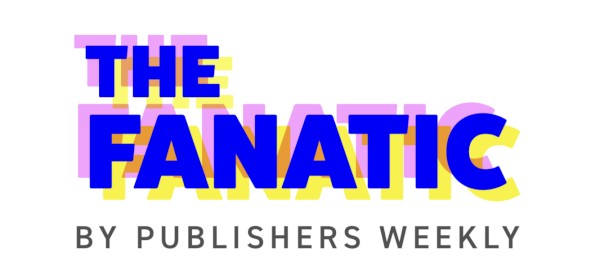
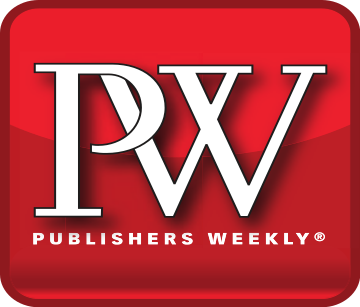
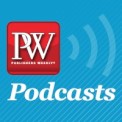
Podcast: Play in new window | Download
Lan Samantha Chang: The Family Chao (A Novel)
February 8, 2022 by David
Filed under Fiction, WritersCast
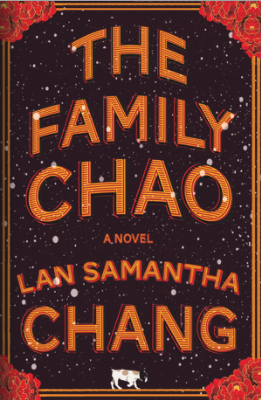 The Family Chao – Lan Samantha Chang – W.W. Norton – 9780393868074 – 320 pages – Hardcover – $29.00 – February 1, 2022. eBook versions available at lower prices.
The Family Chao – Lan Samantha Chang – W.W. Norton – 9780393868074 – 320 pages – Hardcover – $29.00 – February 1, 2022. eBook versions available at lower prices.
This is a beautifully written and thoughtfully composed novel about three brothers in a Chinese American family living somewhat awkwardly in a small town in Wisconsin. It has elements of the picaresque, the humorous and a great deal of sadness and pain that suffuses all.
At the heart of the novel are the three sons of the family patriarch, Leo Chao, who with his wife established and operated the Fine Chao restaurant in this small heartland community for over thirty years. The mother and father are almost mythological characters, he being the large appetite materialist and she being the spiritual – almost mystical – counterpoint to his outsized public persona.
When he dies, he is presumed to have been a murder victim by the residents of Haven, Wisconsin, and consequently unwanted attention is turned toward the brothers, each of whom has attempted to carve out an individual identity separate from their parents. Each of them is suspect in their formerly quiet community – Dagou, now the restaurant’s boisterous chef; Ming, financially successful but emotionally stunted; and James, the youngest, who is a dreamy college student not at all suited to the family tradition.
The book is a wonderful homage, well crafted by this very talented writer to The Brothers Karamazov. Each of the sons must struggle to understand and cope with what happened to his father, and one becomes the public scapegoat in the story. Chang is never heavy handed in her approach, and you don’t have to remember your Dostoyevsky to appreciate The Family Chao completely.
This is a complex and compelling story of what it is like to be an immigrant family in the heart of the heartland. It is also an American story, and very much a universal one at that. I enjoyed Chang’s writing and her storytelling, the many intriguing characters so finely portrayed, and the mystery in the novel that is unveiled unexpectedly that quite deftly ties together the entirety of the family Chao. Lan Samantha Chang is a terrific novelist and we had an equally terrific conversation about this book, her writing and her sense of the world at large.
Lan Samantha Chang is the Director of the Iowa Writers Workshop and Elizabeth M. Stanley Professor in the Arts at the University of Iowa. She is the author of a collection of short fiction and two novels and one book of nonfiction, All Is Forgotten, Nothing Is Lost. She has received creative writing fellowships from Stanford University, Princeton University, the Radcliffe Institute for Advanced Study, the Guggenheim Foundation, and the National Endowment for the Arts.
Podcast: Play in new window | Download
Geoff Rodkey: Lights Out in Lincolnwood (A Novel)
November 3, 2021 by David
Filed under Fiction, WritersCast
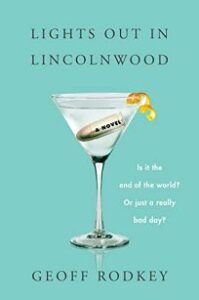 Lights Out in Lincolnwood – A Novel – Geoff Rodkey – HarperCollins – 9780063065925 – Paperback – 544 pages – $16.99 – ebook versions available at lower prices
Lights Out in Lincolnwood – A Novel – Geoff Rodkey – HarperCollins – 9780063065925 – Paperback – 544 pages – $16.99 – ebook versions available at lower prices
I have to admit that I did not expect to really like this book anywhere near as much as I did. I’ve certainly read my share of suburban based stories that wittily poke fun at modern life. But Geoff Rodkey surprised me with Lights Out in Lincolnwood and I found myself reading it every day in big chunks – the kind of book that is dangerous to my sleep as I can’t stop reading. Like eating dried fruit. Except that I did not regret it later.
Today’s world seems to encourage writers to imagine the worst about our future – this book does that for sure. But Rodkey keeps us from getting depressed with humor, even as he tells us the truth about ourselves and our illusions we like to carry around about how we would act under pressure.
And there is not much more pressure one can imagine than the story Rodkey tells here, as an unexplained collapse of our infrastructure suddenly happens. By focusing on a single family and its community, Rodkey is able to bring the whole story down to a practical level, as his characters, whom we readily recognize, go through an almost Marxian (that’s Marx Brothers by the way) experience that readers can’t help laugh at and simultaneously shudder about. It is frighteningly close to home.
How do we survive calamity when we have no idea how to do anything that is needed to survive and the tools we need don’t work and the neighbors we thought we knew turn into completely different people – or maybe reveal themselves for whom they really are, at last.
The entire book takes place during an action packed and tension filled four days – chaos, change, fear, hysteria, and perhaps even joy mark the struggle of the Altman family as they try to determine how to live in a world without technology. They struggle with getting food and water, their modern past-times and addictions, neighbors who become militaristic and brutal, and the town’s looting of the local Whole Foods is the least of the craziness they have to contend with as they try to figure out just what is going on and how they will manage to get through a worldwide catastrophe.
It’s impossible to not be captivated by this book. It was fun to read and to talk to Geoff, and I know it made a difference as its story line and characters have stayed with me long after I finished reading the book. We had a terrific time talking for Writerscast about this book and Geoff’s work as a writer in various media.
Geoff Rodkey is the New York Times best-selling author of ten children’s books, including the Tapper Twins and Chronicles of Egg series; We’re Not From Here; and Marcus Makes a Movie, a collaboration with actor Kevin Hart. He’s also the Emmy-nominated screenwriter of Daddy Day Care and RV, among other films. Geoff lives in New York City with his family.
In particular, We’re Not From Here, A sci-fi comedy for middle grade readers about a family of humans who immigrate to an alien planet after Earth is destroyed (written for middle grade readers) looks like another fun Rodkey story.
Podcast: Play in new window | Download
Publishing Talks: Interview with Jeff Deutsch of Seminary Co-op Bookstores
October 12, 2021 by David
Filed under PublishingTalks, The Future
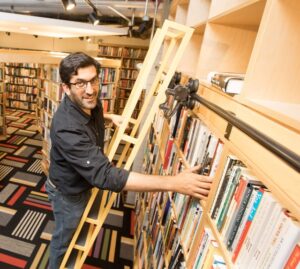 Publishing Talks began as a series of conversations with book industry professionals and others involved in media and technology, mostly talking about the future of publishing, books, and culture. I’ve spent time talking with people in the book industry about how publishing is evolving in the context of technology, culture, and economics.
Publishing Talks began as a series of conversations with book industry professionals and others involved in media and technology, mostly talking about the future of publishing, books, and culture. I’ve spent time talking with people in the book industry about how publishing is evolving in the context of technology, culture, and economics.
Some time back, this series broadened to include conversations that go beyond the future of publishing. In an effort to document the literary world, I’ve talked with a variety of editors, publishers and others who have been innovators and leaders in independent publishing in the past and into the present.
These conversations have been inspirational to me on many levels. I have gotten to speak with visionaries and entrepreneurs, as well as editors and publishers who have influenced and changed contemporary literature and culture. I’ve also had the opportunity to speak with a number of friends and colleagues I have met over the many years I have been in the book business.
This week’s podcast is one I am really excited about. Jeff Deutsch is the director of Chicago’s Seminary Co-op Bookstores, which calls itself the first not-for-profit bookstore in the United States whose mission is devoted to bookselling (there are other nonprofit bookstores of course, generally components of literary centers, like Beyond Baroque in Venice, California, Woodland Pattern in Milwaukee, and Writers and Books in Rochester, NY are examples).
Last spring I read a report of a Book Industry Study Group panel that included Jeff, and what he talked about immediately caught my attention. Deutsch was reported to have said that the model of bookselling we’ve inherited needs to be rethought: just facilitating more sales, more efficiently, is not the way for bookstores to survive. A bookstore that actually means something to readers will need to carry a deep backlist and to spend time helping readers discover new voices, new texts.
During that panel Deutsch said, “The publishing world and distributors—what you value is not our ability to sell books,” because independent bookstores can never sell in the same volume as Amazon. “Yet we all know how important bookstores are,” he said. As publishers and booksellers once knew, developing readerships for books and authors takes time and devotion that have been boiled out of the entire process now.
Jane Friedman’s outstanding book industry newsletter Hot Sheet compared Jeff’s approach to the Slow Food movement (I think that idea makes sense – I wrote a manifesto for publishers a few years ago on the idea of Slow Publishing, but never developed it enough to publish). Nina Barrett, owner of Bookends & Beginnings in Illinois (which has filed a lawsuit against Amazon), also on the BISG panel said “I think it’s like Alice Waters talking for decades about a sustainable food ecosystem and ultimately revolutionizing the food industry that way. That’s the point we’re at.”
As Jane pointed out, “independent booksellers will lose every time if they base their worth on the mere transactional value of selling books. His stance—that bookselling has a deeper meaning and cultural value—is indeed how boutique and online retailers outside of the Amazon ecosystem are positioning themselves for success.”
Deutsch also said, “We should figure out models that support the work that we’re trying to do, not shoehorn this other model of retail that is really just about buying and selling and not about culture….We all have vocational awe, but couldn’t we have vocational awe and still make a decent living?”
This conceptual framework resonates with me and I think is worthy of much more discussion. Why shouldn’t there be a nonprofit bookselling sector to promote literary and other noncommercial books and authors, just as there is a nonprofit theater? Why should we continuously try to fit a crucially important culture activity into a commercial model, and always fail?
I hope that hearing Jeff talk about this concept will help stimulate further discussion and concrete action. Please feel free to comment and if you are interested in helping, please be in touch.
Connect to the Seminary Co-op Bookstores website here.
Before joining the Co-op Deutsch was the director of stores for the Stanford Bookstore Group and prior to that managed the Cal Student Store at the University of California, Berkeley.

Podcast: Play in new window | Download
Even as We Breathe, A Novel: Annette Saunooke Clapsaddle
December 1, 2020 by David
Filed under Fiction, WritersCast
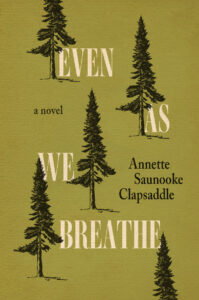 Even as We Breathe, A Novel – Annette Saunooke Clapsaddle – 9781950564064 – University Press of Kentucky – Hardcover – 240 pages – September 2020 – $24.95 – ebook versions available for sale at lower prices
Even as We Breathe, A Novel – Annette Saunooke Clapsaddle – 9781950564064 – University Press of Kentucky – Hardcover – 240 pages – September 2020 – $24.95 – ebook versions available for sale at lower prices
This has been a good year to read fiction, and I am really pleased to have discovered this author. She is a fine writer whose storytelling is powerful, yet restrained.
While this novel has some elements of a mystery, it is really a very personal story about family, love and growing up into the world of western North Carolina during World War II. The book’s main character is nineteen-year-old Cowney Sequoyah, who has grown up in the woods of Cherokee land, raised mostly by his grandmother. The novel is set between the upscale Grove Park Inn, an Asheville resort serving as an internment camp for diplomat prisoners of war and their families.
The Inn provides Cherokee men and women with employment off their reservation, and this is Cowney’s first real time away from home. At the core of the story, Cowley is accused of being involved in the disappearance of a diplomat’s daughter and must move back and forth to home as he attempts to understand the basis of the the unfair accusations, and prove his innocence while at the same time wrestling with his newfound love for another young Cherokee, Essie Stamper, and figuring out his complex family history.
There is alot going on in this subtle and quietly told novel! And a number of surprises are in store for the reader that bring the story to a remarkable and rewarding close.
Even As We Breathe is filled with details and moments that identify the Cherokee tribe and its homeland. The story gives Annette the opportunity to express the meanings of the Cherokee culture as it has survived into the modern world, sometimes still with the values of its people in conflict with the world of white people.
A secret room in the Grove Park Inn becomes a place where Cowney and Essie can escape the white world and try to imagine their futures independent of outsider influences. For awhile, it can feel to them that they have a place of their own. But racism and prejudice are constantly present, and both Cowney and Essie must face disappointment, and struggle to define their identities as Cherokees within a complicated environment that does not give them the space they truly need to be themselves.
Annette Saunooke Clapsaddle, an enrolled member of the Eastern Band of Cherokee Indians (EBCI), graduated from Yale University and has a masters from the College of William and Mary. Her unpublished novel, Going to Water won the Morning Star Award for Creative Writing from the Native American Literature Symposium and was a finalist for the PEN/Bellwether Prize for Socially Engaged Fiction. After serving as Executive Director of the Cherokee Preservation Foundation, Annette (National Board Certified since 2012) returned to teaching English and Cherokee Studies at Swain County High School. She is the former co-editor of the Journal of Cherokee Studies and serves on the Board of Trustees for the North Carolina Writers Network.
“Debut writer Annette Saunooke Clapsaddle lifts the curtain to show us a South we don’t know, revealed through the struggles of Cowney Sequoyah, a young man growing up within the Cherokee Nation of far Western North Carolina, and yet another surprise setting when he takes a job at Asheville’s fabled Grove Park Inn while it is being used by the US military as a place of internment for Axis prisoners of war during World War II. Even As We Breathe is a wonderful novel, complicated as life itself — thrilling, mysterious, and finally, a revelation!” — Lee Smith, New York Times bestselling author of Blue Marlin
This novel was impossible for me to put down and is one of my favorite books I have read this year. It was a deep pleasure for me to speak with Annette about this book and her writing.
I believe you will enjoy this conversation as much as I did.
Purchase Even as We Breathe from Bookshop.org to support independent bookselling.
Author’s website here.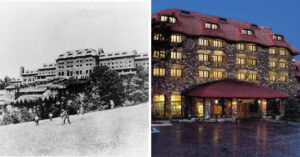
Podcast: Play in new window | Download
Publisher and editor John O’Brien has died
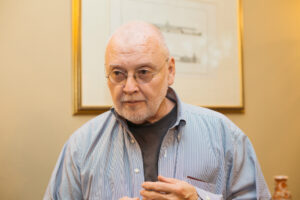 Old friend and colleague John O’Brien, founder of Review of Contemporary Fiction and Dalkey Archive Press passed away on November 21st.
Old friend and colleague John O’Brien, founder of Review of Contemporary Fiction and Dalkey Archive Press passed away on November 21st.
John and I had many mutual friends in literature and similar tastes and interests, and his vision of writing and books led me to learn about many writers whose work I would otherwise never have known. He was opinionated and sometimes difficult, but his dedication and commitment to discovering and presenting important books never wavered.
Here’s a good representation of his view of the work he did:
So I started the Review out of a sense of isolation, as well as a kind of outrage at the fact that books and authors were reduced only to marketplace value. And I should say that, from the start, I wanted the magazine to break down the artificial barriers that exist among countries and cultures. It was my view then and now that one can’t properly come to terms with contemporary writing without seeing it in an international context, and it’s also my view that Americans generally don’t want to know anything about the world outside the United States unless they are planning a vacation.
I interviewed John in 2016 for my Publishing Talks series of conversations with independent editors and publishers. We had a long and wide ranging conversation about the history of both his journal and his book publishing efforts.
In the description of that interview I quoted him: “I wanted the Press to define the contemporary period, or at least what I saw as what was most important in the contemporary period. Further, I wanted these books permanently protected, which is why from the start the Press has kept all of its fiction in print, regardless of sales. And as with the Review, I wanted the books to represent what was happening around the world rather than more or less being confined to the United States. Like the Review, Dalkey Archive Press was and is a hopelessly quixotic venture.”
In 2011, Dalkey Archive received a Lifetime Achievement Award from the National Book Critics Circle, and in 2015 John O’Brien was made a knight in the Orde des Arts et des Lettres for his contributions to publishing French literature abroad. Not bad for such a “hopelessly quixotic” operation. The catalog of Dalkey is massive and is a remarkable testament to the talent, taste and energy John brought to his work and life.
The latest news is from Deep Vellum, which has acquired Dalked and RCF:
Before his passing, the Dalkey Archive’s board of directors approved an agreement to merge with Deep Vellum Publishing, a nonprofit publishing house and literary arts center based in Dallas, TX. Deep Vellum and its publisher Will Evans plan to honor John O’Brien’s legacy by keeping Dalkey Archive’s backlist in print and by signing future titles, together with the assistance of editorial consultant, Chad W. Post, of Open Letter Books at the University of Rochester.
As an editorial imprint of Deep Vellum, Dalkey Archive will remain true to O’Brien’s vision of keeping its legendary backlist in stock, continuing to publish leading literature from around the world, and working closely with readers, students, editors, writers, and translators to foster an international community for literature. Will O’Brien, John’s son and current president of Dalkey Archive’s board of directors, will join Deep Vellum’s board of directors as part of the merger.
An online memorial service to honor John O’Brien’s life and work will be held on December 9th. Keep up with Deep Vellum here.

